The silent toll of unpromotable work
When she was in her first faculty position at Ball State University in Indiana, Karlett Parra started volunteering with the Science Olympiad, a national K–12 team competition focused on science education and outreach. Over the years, her role grew; for three years she was the registration coordinator for the East Central Indiana Science Fair. Although Parra was also mentoring several students, maintaining her research program, writing grants and serving on several committees, she kept dedicating more time to the Olympiad.
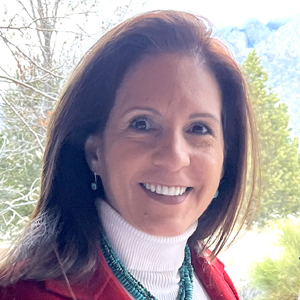
“It was a beautiful experience that helped science development and helped kids get inspired and motivated by science,” Parra said. “But, it was something I really didn’t need to do.”
Extra commitments like this one are everywhere in academia — from sitting on qualification committees to volunteering with outreach programs and beyond — and can take significant time and effort. These efforts may be of great value to students, the department or the institution, but they do not advance the faculty member’s career. Yet, this work often is not acknowledged or recognized during annual reviews. Instead, researchers are evaluated on their performance in what are known as “core” areas such as research, teaching, mentoring and school service.
Geoffrey Kapler, a professor and former chair of the molecular and cellular medicine department at Texas A&M University, said there’s a name for this phenomenon that highlights its professional downside.
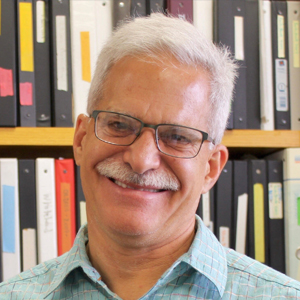
“This type of extra work can become what has been termed ‘un-promotable work’ when it isn’t recognized by department heads or review committees during annual reviews or the promotion process,” Kapler said.
Parra has been doing this kind of work throughout her career, partly because she wanted to learn and fit into this country’s scientific community. She moved to the U.S. from Venezuela after earning her undergraduate degree, and while she wasn’t planning to stay in academia, in grad school she fell in love with research and teaching. She is now a professor and chair of the biochemistry and molecular biology department at the University of New Mexico.
Women bear the brunt
In her experience, Parra said, specific groups seem to do more of this nonpromotable work.
“I’ve seen a trend where women tend to take on more, especially a lot of foreign women,” she said. “Not that men and others don’t do this work, but this group seems to go above and beyond.”
Karen Allen, professor and chair of the chemistry department at Boston University, sees the same trend.
“There have historically been fewer women available to take on responsibilities internally for the university or externally to professional societies,” Allen said. “In an attempt to balance the composition, women are being asked more frequently to do this work, and my understanding is that those from underrepresented populations would be even more in demand.”
This phenomenon has been researched as well — the Women and Public Policy Program at Harvard University found that when an undesirable task is presented and no one immediately volunteers, women will take it on twice as often as men. As a case in point, at one large university, a WPPP study found, only 3.7% of the faculty volunteered to serve on a faculty senate committee — a nonpromotable task. And women were 2.7 times more likely than men to volunteer.
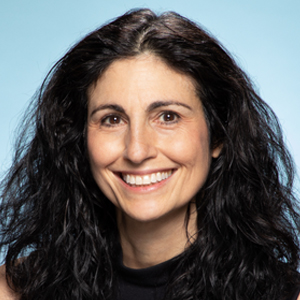
Kapler affirmed that women take on more of the nonpromotable work burden. As department chairs, Parra, Kapler and Allen, who are all members of the American Society for Biochemistry and Molecular Biology’s Women in BMB Committee, said they try not to overload those faculty members who are willing to take on extra tasks.
“When someone does a good job, there is a tendency to ask them for more,” Parra said. “I try to compensate them for their time by adding incentives to salaries or other ways, but I also try to make sure work is equitably distributed.”
Allen agreed and said that, on a departmental level, she is constantly fighting to make sure people who do a good job aren’t continuously overburdened. Even so, as faculty members take on more nonpromotable work, they will have to adjust their priorities. This can lead to less time for research, grant-writing or their personal life, creating an imbalance that can be hard to sustain.
When to say no
In recognition of the unequal burden on women, some faculty members are pushing back. Four women in the social sciences and economics fields at Carnegie Mellon University and the University of Pittsburgh wrote “The No Club,” a book that explores how work is distributed in academia. In it, they use their research findings — which also found that women are 44% more likely to be asked to do nonpromotable work — to build a framework for women to balance their priorities and say no to tasks that don’t serve them.
To be a good science citizen and give back to the community, Parra, Kapler and Allen think it’s important for faculty members to stay engaged in nonpromotable work that they find individually meaningful. But these department chairs also caution against researchers overloading their plates. When Kapler has felt overburdened by extra work in the past, he said it bled over into his professional and personal life.
“I would drive to work, and I could feel my mood changing by the mile,” he said. “I would get there and be incapacitated — promotable or unpromotable, no quality work is going to happen on a day like that.”
Kapler advises any faculty member who feels like they’re drowning to ask for help. Start with the department chair, who is usually an ally for their department members, he said, or a more senior faculty member or mentor.
When a faculty member comes to him with this kind of issue, Kapler said he starts by asking which activities they can step away from. He first has them identify commitments that must continue and then asks about tasks that are the most personally or professionally meaningful. Talking to a doctor or therapist can also help researchers make sure their mental health doesn’t suffer.
Allen said her top tip when asked to take on extra work is the “pause rule.”
“You don’t need to say yes to a new commitment right away,” she said. “Take the time to stop and make sure you know what the commitment is and think about how it will impact your current responsibilities. If you put this on your plate, ask yourself what will fall off and if that is worth it.”
For anyone who has a hard time saying no to new commitments, even after taking a pause, Parra’s advice is to further delay answering.
“Say you need to ask your department chair, to delay that feeling of obligation to say yes immediately, then think about if you can really take on another task,” she said. “You can also talk with your department chair about what tasks you need to take off your plate before saying yes to something.”
Parra, Kapler and Allen encourage faculty members to engage in meaningful unpromotable work, but with limits. Individual faculty members need to evaluate whether they are overburdened, but department chairs and other senior faculty can also help.
They can start by recognizing that women and members of historically underrepresented groups take on more of this unpaid and unpromotable work, as Parra, Kapler and Allen have. By addressing this trend, departments can move toward creating a more equitable distribution of work.
Enjoy reading ASBMB Today?
Become a member to receive the print edition four times a year and the digital edition monthly.
Learn moreFeatured jobs
from the ASBMB career center
Get the latest from ASBMB Today
Enter your email address, and we’ll send you a weekly email with recent articles, interviews and more.
Latest in Careers
Careers highlights or most popular articles

Mapping proteins, one side chain at a time
Roland Dunbrack Jr. will receive the ASBMB DeLano Award for Computational Biosciences at the ASBMB Annual Meeting, March 7–10, just outside of Washington, D.C.

Exploring the link between lipids and longevity
Meng Wang will present her work on metabolism and aging at the ASBMB Annual Meeting, March 7-10, just outside of Washington, D.C.

Upcoming opportunities
Calling all biochemistry and molecular biology educators! Share your teaching experiences and insights in ASBMB Today’s essay series. Submit your essay or pitch by Jan. 15, 2026.

Defining a ‘crucial gatekeeper’ of lipid metabolism
George Carman receives the Herbert Tabor Research Award at the ASBMB Annual Meeting, March 7–10, just outside of Washington, D.C.
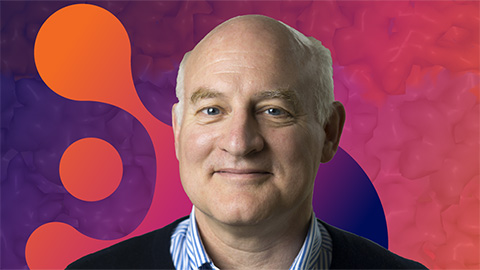
Building the blueprint to block HIV
Wesley Sundquist will present his work on the HIV capsid and revolutionary drug, Lenacapavir, at the ASBMB Annual Meeting, March 7–10, in Maryland.
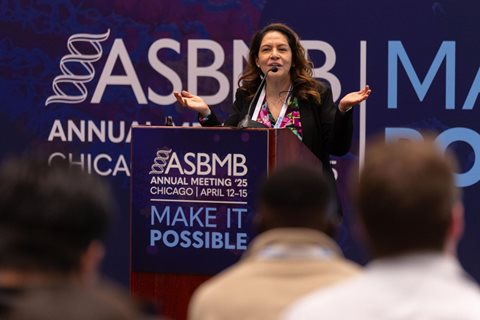
Upcoming opportunities
Present your research alongside other outstanding scientists. The #ASBMB26 late-breaking abstract deadline is Jan. 15.

